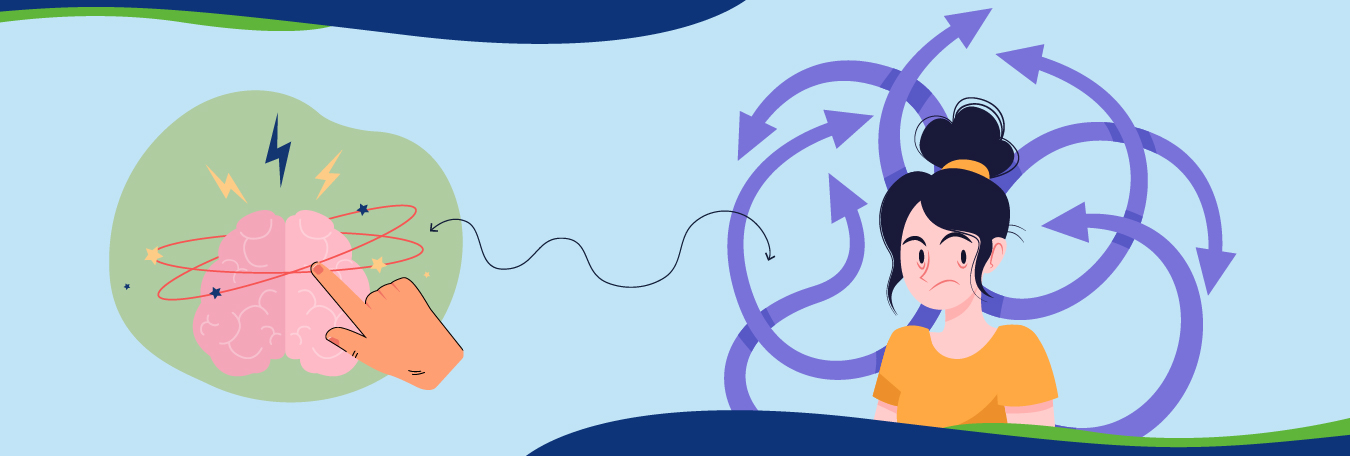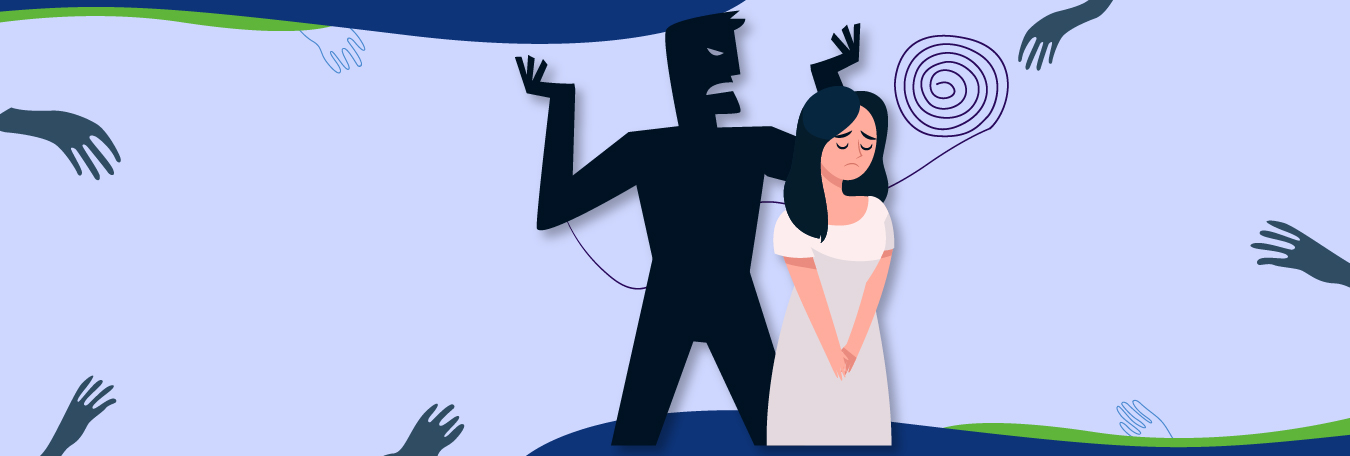The time after or during the pregnancy is a time of joy. But sometimes it can be turned into a significant life event when it comes with ups and downs, mood swings, and depression. This is called postpartum depression, or perinatal depression.
This can be a serious mental condition. It is a type of mood disorder that can affect women during pregnancy or after childbirth.
But this condition is different from the temporary “baby blues”, which many people experience.
According to the data, it affects approximately 10% to 15% of new mothers. This serious disorder requires professional treatment.
Key Differences Between Baby Blues vs. Postpartum Depression
It is important to know the difference between the “baby blues” and postpartum depression (PPD).
When They Start and How Long They Last
Baby blues often appear a few days after a baby’s birth, normally between days two or day five. However, these feelings go away on their own within about two weeks.
But postpartum depression is different from baby blues and is a more severe form of depression. It lasts longer than a week.
Symptoms of depression can begin after a few weeks of delivery or even as late as six months to a year later. It needs a treatment from professionals because without treatment, PPD can continue for many months or even years.
Read More: Baby Blues vs Postpartum Depression
Symptoms of PPD
While the baby blues bring feelings of sadness and worry, these feelings are not as intense. They do not typically interfere with a mother’s ability to take care of herself or her baby.
PPD symptoms are much more severe. The women can experience profound sadness, anxiety, and a sense of hopelessness. These feelings can make it hard to perform daily tasks or connect with their baby.

Common Symptoms of Postpartum Depression
Postpartum depression symptoms can be emotional, behavioral, and physical. A diagnosis is typically made if these symptoms continue for at least two weeks or turn into severe symptoms.
Emotional Symptoms
Feelings of persistent sadness, emptiness, or a depressed mood are common signs of PPD. Women can also experience severe mood swings, intense irritability, and anger. Many women feel worthless, guilty, or inadequate and may have a feeling of hopelessness or helplessness.
They might have frequent or uncontrollable crying spells, or they may feel a loss of interest and pleasure in activities they once enjoyed, a feeling of anhedonia.
In some cases, women feel numb or empty and are unable to let go of these thoughts. In more severe cases, there can be thoughts of harming yourself or your baby, or recurring thoughts of death or suicide.
Behavioral and Physical Symptoms
PPD can make it hard to make a bond with a newborn baby, which leads to a feeling of detachment. Women can find themselves withdrawing from family and friends. There can be a significant change in appetite, such as eating too much or much less than usual.
Sleep disturbances are also a key sign, including insomnia or sleeping too much.
Women may feel an overwhelming sense of fatigue and a loss of energy. Other symptoms include poor concentration, difficulty in thinking clearly (brain fog), restlessness, and a lack of self-care. It is also common to experience a low libido and to worry about harming oneself, baby, or partner.
Causes
What causes postpartum depression is not clear. However, it is likely the result of a combination of physical, emotional, genetic, and social factors.
Biological And Physical Causes
There are several biological changes that play a role in developing PPD.
Hormonal Shifts
The first among the postpartum depression causes is a huge drop in hormones like estrogen and progesterone. This sudden change is a major factor for PDD. Other hormones, like those from the thyroid, can also fall sharply, which can cause tiredness and sluggishness.
Estradiol,a hormone, increases during pregnancy. This one also drops after delivery, which leads to lower levels of serotonin, a brain chemical that helps regulate mood.
Even new fathers experience hormonal changes, such as a drop in testosterone, which can also contribute to depressive symptoms in males.
Neurosteroids
A new oral medication for PPD, zuranolone, works by restoring allopregnanolone, a neurosteroid that significantly decreases after birth.
Synthetic Oxytocin
Some research suggests that synthetic oxytocin, a drug that is used to start labor, can be linked to a higher risk of postpartum depression and anxiety.
Genetic Predisposition
If a woman has a personal or family history of depression, their risk of developing PPD is much higher than that of other women.
Sleep Deprivation
Lack of sleep can also be a factor in feeling anxiety and depression. Insomnia is a known risk factor for PPD.
Preventive Measures
Preventing postpartum depression (PPD) involves a combination of medical and emotional support. A key strategy is offering psychosocial support to those who may be at risk.
Social Support Systems
Having strong emotional support from a partner, family, or friends is a huge help. When a new parent has a good support system, their chance of getting PPD goes down. Family and friends are key here. For couples, having a close and supportive partner can protect against depression and anxiety.
Some cultures have traditional postpartum practices and rituals that also help. These can involve organized support, special diets, rest, and help with infant care. They often act as a good preventative measure.
Read More: Reactive Depression happens When Life Changes Cause a Deep Sadness
Counseling and Therapy
Therapy is also recommended for high-risk groups, such as those with a history of depression or socioeconomic challenges.
- Group therapy, particularly for new parents with fewer financial resources, shows promise in preventing PPD.
- Intensive interventions that focus on the parent-child bond, like weekly therapy and coaching on interacting with your baby, have helped improve developmental outcomes for children of mothers with depression.
- For mild depression during pregnancy, support groups and counseling can be effective.
Community-Based Programs
Community mental health teams for new parents can also make a big difference. These teams help people access mental health support and can lower the risk of relapse for women with a history of mental health issues. Online support groups, like those from Postpartum Support International, offer resources to parents for a wide range of specific needs.
Medical and Biological Support
Preventing postpartum depression (PPD) involves medical and biological considerations. If you have a history of depression, talk to your doctor when you are planning a pregnancy or as soon as you find out you are pregnant. Your doctor can then watch you for symptoms.
Antidepressants
For people with a history of PPD, doctors may suggest taking antidepressants or starting talk therapy right after the baby is born. While research on taking antidepressants as a preventative measure is limited, it is still an option. Most antidepressants are considered safe while breastfeeding.
Addressing Physical Factors
While there’s no direct way to stop hormonal changes, it’s important to know their role in PPD. Getting enough sleep is also essential, as lack of sleep can make PPD symptoms worse. Help with childcare can give new parents the rest they need.
Other Therapies
Some other therapies may help prevent or manage mild symptoms of PPD.
- Exercise: Regular exercise is good for your overall health during and after pregnancy. While it may not prevent PPD, it can improve your well-being.
- Massage Therapy: Getting a massage during pregnancy can help reduce symptoms of depression before and after birth.
- Bright Light Therapy: This may be a good non-medication option, as some studies show it helps with depression during pregnancy.
- Supplements: While some studies show a link between eating fish and fewer depressive symptoms, large-scale studies have not shown that supplements like omega-3 fatty acids or folate prevent PPD.
Read More: How To Be Happy Again After A Difficult Time?
When Is It Time To Seek Help?
If you are feeling the same symptoms as PPD, having negative thoughts or feelings, or problems with sleeping, consult a doctor or psychiatrist. It is necessary; otherwise, the symptoms can worsen to anxiety, suicidal thoughts, death, or parental issues, and can last longer than two weeks.
The professional can help you establish a treatment plan, which can involve a combination of therapy and medication.
There is a chance that some new parents are reluctant to see a psychiatrist, but the good thing is that at Inland Empire Behavioral Group, we never disclose the patient’s identity or private information. With us, it is a top secret. We provide solutions for postpartum depression and other related mental disorders.
If you or a loved one shows signs of perinatal or postpartum depression, our psychiatric services are available to provide support and treatment. You do not have to go through this alone.




